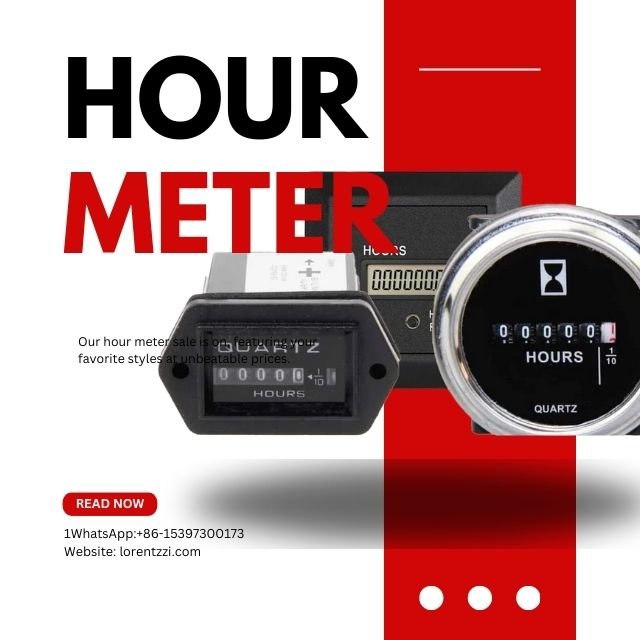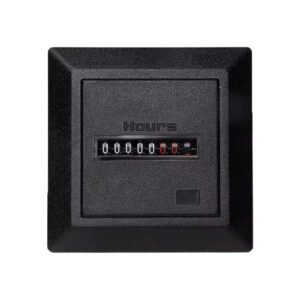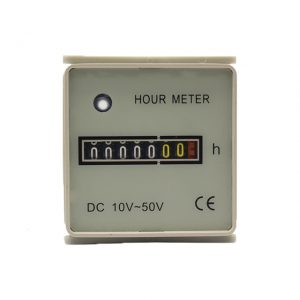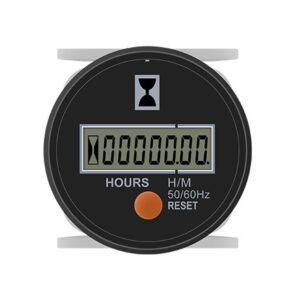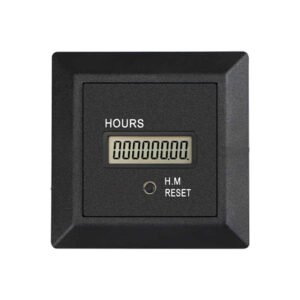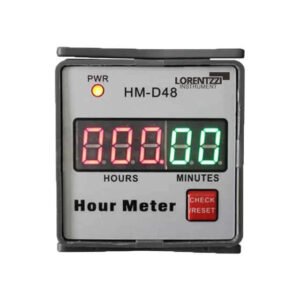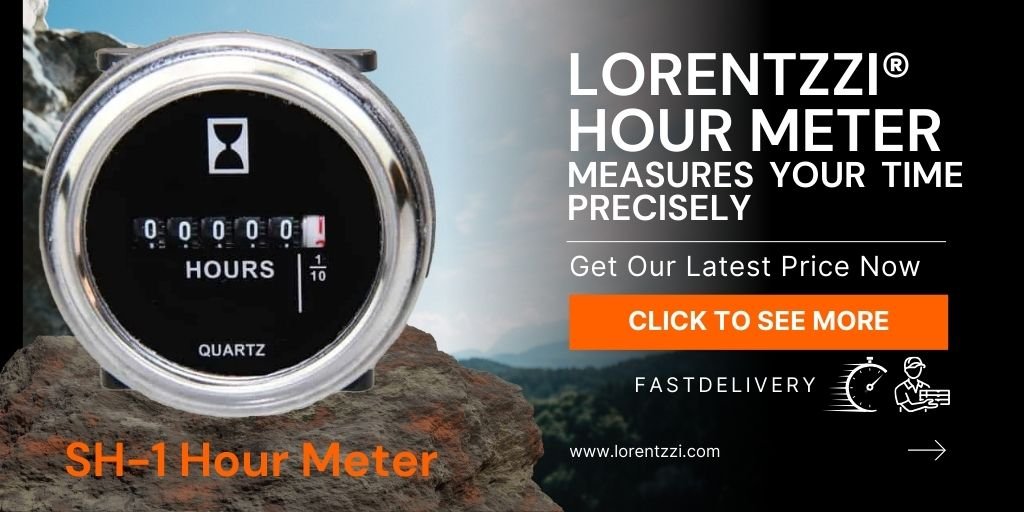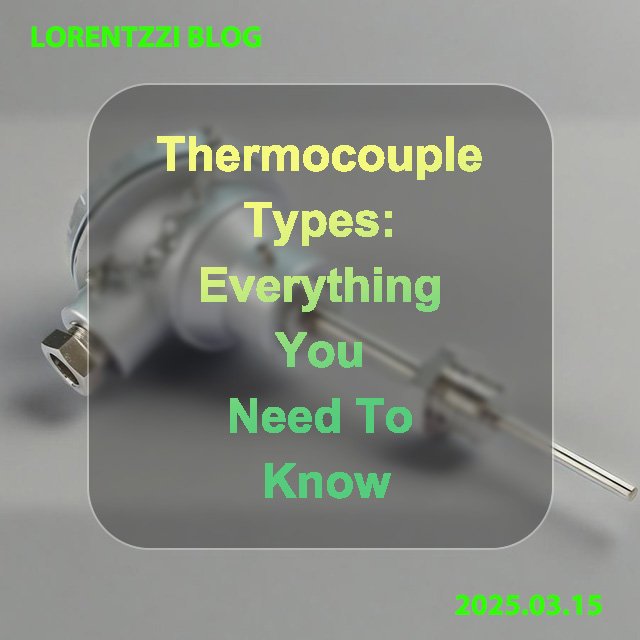what is an hour meter?
An hour meter is an instrument to record the total time consumed by a machine or an equipment. It is also called elapsed time counter, hour counter, time accumulator, time meter and time recorder. The hour meters can be easily found in UV disinfection machines, which record the UV light total running time. Once the UV light working time reaches 500 hours, the UV lighting source needs to be changed. Another typical application for this instrument is recording the diesel engine running time, in order to maintain the diesel engine on time. This article will cover the types, how it works, applications and the buying guide of it.
Types of Hour Meters
Based on the working principle, there are 2 types, mechanical one and digital one.
Mechanical hour meters use mechanical structure to record time. A typical mechanical timer is our SYS-1 hour meter, it consists of a scroll wheel and some electronics components. With the power on and time elapsed, the scroll wheel will rotate accordingly. The mechanical one will not lose the time it has counted, in other words, it has a memorized function. But the disadvantage is that it’s accuracy is not so good because of mechanical error.
Digital hour meters use digital circuits to record time, digital hour meters can precisely indicate an equipment running time by its LCD display. But the disadvantage is that if the digital hour meter doesn’t have a battery, once the electricity is cut off, it will lose all data. And digital hour meters can be seriously affected by electromagnetic interference.
Therefore, an obvious difference between mechanical and digital time counters is whether they have a LCD display or not.
How Hour Meters Work

Once the mechanical timer is powered on, the internal motor will push the gear to rotate. Obviously, after one hour has passed, the display wheel will increase by one number.
The digital one uses a quartz crystal oscillator to calculate the time.The quartz oscillator will oscillate after applying voltage, and the frequency of oscillation will be fixed at a value. After the oscillation frequency is determined, the time can be calculated.
Applications of Hour Meters
We can use the hour counters not only in industrial applications, but also in automotive use.
In some industrial applications, regular maintenance of equipment is very important. Regular maintenance of equipment can identify problems and solve them in time to avoid further expansion of harm. The applications are air compressors, air conditioners and so on. Regular maintenance
In the automotive fields, the time accumulator also plays a very vital role as an automotive timer, such as engineering vehicles, excavators and other engineering or agricultural machinery cars and boats etc..
Benefits and Limitations
Using an hour meter makes the maintenance scheduling work of an equipment much easier and cost-saving. Its price is cheap, and if without it, the workers need to write maintenance time by hand, thus, it saves labor cost as well.
The limitation is once the hour meter fails to work, we will lose the information after that, so how to choose the right hour meter is another important point to consider. In the following part, I will introduce the buying guide for it.
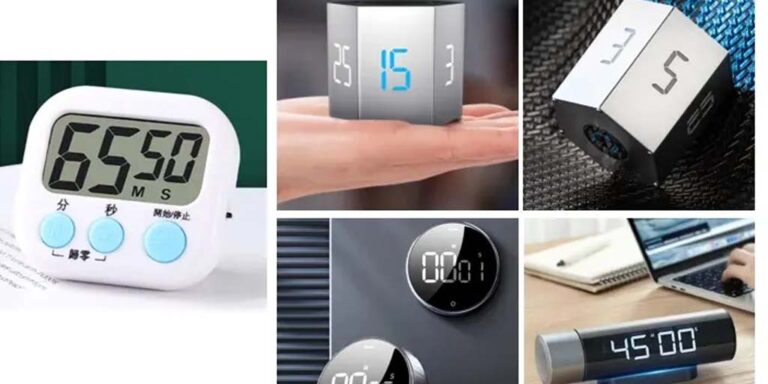
Buying Guide
Choosing a right hour meter can save time and money, there are 4 factors should consider:
Accuracy: An digital hour meter time accuracy is much higher than mechanical hour meter. A digital hour meter accuracy can be 0.01 hours, while mechanical one time accuracy is only 0.1 hours. If your application needs high accuracy, a digital hour meter is a good choice.
Durability: Mechanical hour meter durability is not as good as digital hour, the reason is that when you use it for a long time, the mechanical structure will wear out. Thus, it can cause low time accuracy. Generally, we can use a digital time counter for at least several years without any problem.
Budget: We always say you get what you pay for. That is also suitable for choosing the right hour meter. Generally speaking, a digital hour meter price is more expensive than a mechanical hour meter. If your budget is adequate, try to use a digital hour meter instead of machinal one.
FAQs
1. How do I install an hour meter?
The installation is much easier, you just need to wire this hour meter in series with the equipment that you want to track its running time. Once the equipment is powered on, the hour meter will start to record time.
2. How accurate are hour meters?
Mechanical one is 0.1 hours, digital one is 0.01 hours, digital hour meter has high accuracy than digital one.
3. Can hour meters be reset?
Usually, mechanical ones don’t have reset function, digital ones can be produced with both reset and non-reset functions. Non-reset one is better for equipment maintenance.
4. What is the lifespan of an hour meter?
Mechanical one lifespan is 3-5 years, digital one is 8 years.
Conclusion
By reading the above information about hour meters, we can clearly know what the hour accumulator is and how many types of it etc.. Lorentzzi can supply both digital and mechanical hour meters with the best quality.

